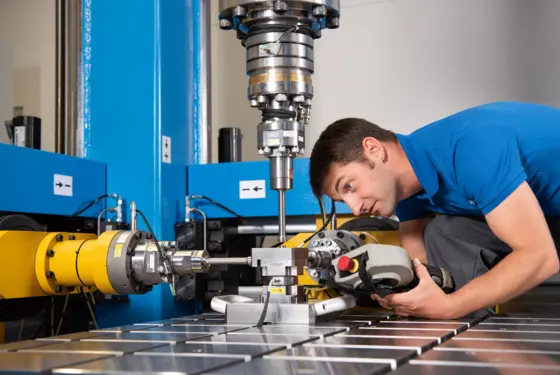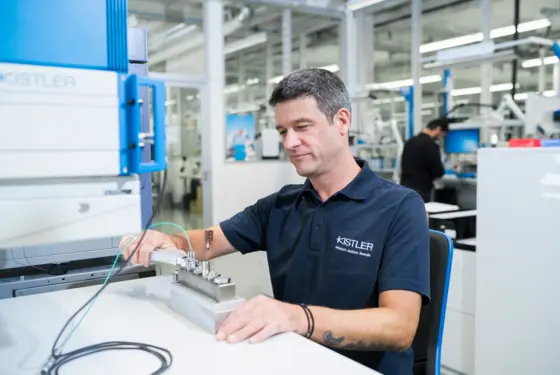Kistler is the global market leader in dynamic measurement technology. We aim for quality and maximum precision – goals that apply not to our products only, but to our services, too.
Every measuring instrument is exposed to many influences during its entire lifetime: wear, overload or vibrations - but also drift behavior or material changes can falsify measuring equipment and thus measured values without the user noticing. Regular calibrations are therefore essential to ensure the precision and reliability of measuring solutions.
Calibrations create added value
A calibration provides information about the metrological properties of a measuring instrument:
- Does the instrument measure with sufficient accuracy?
- How is the repeatability?
- Is the instrument within its specifications?
These questions can only be answered by calibrations. Repeated calibrations - ideally carried out by the same service provider - provide the necessary data for evaluating the measuring device and therefore for assessing your production processes, for example. This founds a reliable basis for determining calibration intervals and making process influencing decisions.
Kistler is your reliable partner for traceable calibrations, accredited according to ISO/IEC 17025
Traceable calibrations of measuring equipment enable precise measurements. Kistler therefore offers a comprehensive range of calibration services, tailored to the needs of our customers.
Traceable calibrations are carried out by laboratories, accredited according to ISO/IEC 17052 by a national accreditation body. Only traceable calibrations guarantee complete metrological verification to national or international standards - a requirement of many standards such as ISO 9000 or regulations such as IATF 16949.



